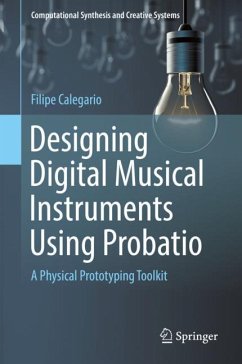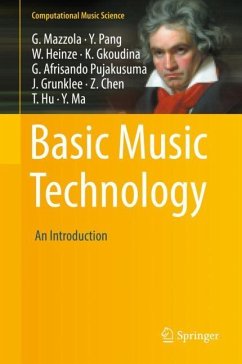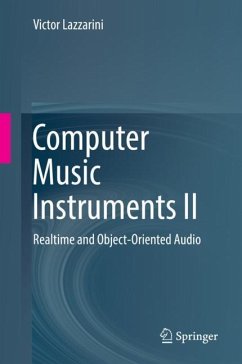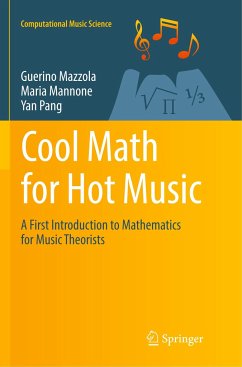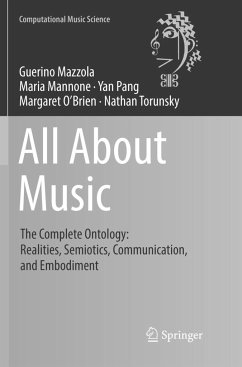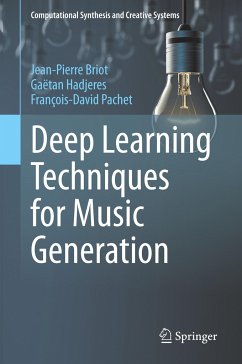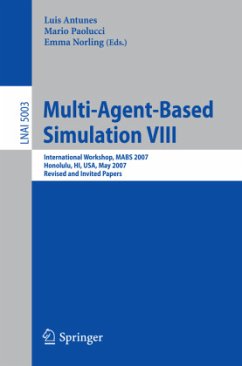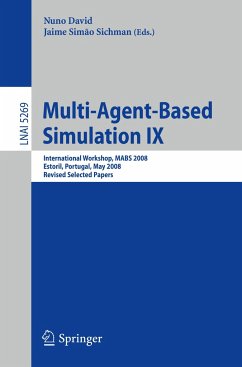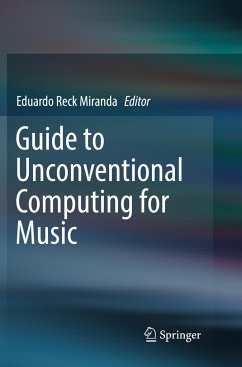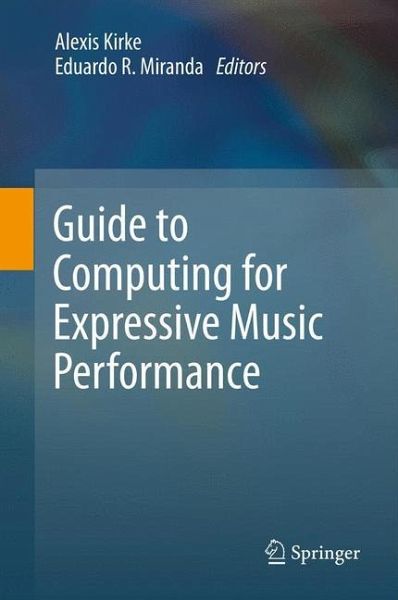
Guide to Computing for Expressive Music Performance

PAYBACK Punkte
19 °P sammeln!
Musicians are able to produce an expressive performance of a fixed score by varying the tempo and dynamics of their playing. This is in contrast to computers and sequencers that historically performed tunes in perfect metronomic time, resulting in a mechanic sound.This unique guide/reference presents a broad overview of the work being carried out by the expanding research community dedicated to investigating computer systems for expressive music performance (CSEMPs), covering a significant number of the systems available today. The book discusses all aspects of computing for expressive perform...
Musicians are able to produce an expressive performance of a fixed score by varying the tempo and dynamics of their playing. This is in contrast to computers and sequencers that historically performed tunes in perfect metronomic time, resulting in a mechanic sound.
This unique guide/reference presents a broad overview of the work being carried out by the expanding research community dedicated to investigating computer systems for expressive music performance (CSEMPs), covering a significant number of the systems available today. The book discusses all aspects of computing for expressive performance, from the history of CSEMPs to the very latest research, in addition to discussing the fundamental ideas, and key issues and directions for future research.
Topics and features:
Includes review questions at the end of each chapterPresents a survey of systems for real-time interactive control of automatic expressive music performance, including simulated conducting systemsExamines two systems in detail, YQX and IMAP, each providing an example of a very different approachIntroduces techniques for synthesizing expressive non-piano performancesAddresses the challenges found in polyphonic music expression, from a statistical modelling point of viewDiscusses the automated analysis of musical structure, and the evaluation of CSEMPsDescribes the emerging field of embodied expressive musical performance, devoted to building robots that can expressively perform music with traditional instrumentsThis comprehensive reference is an essential resource for researchers, advanced undergraduates and postgraduates interested in computing for expressive music performance. Music practitioners, music undergraduates, and the general reader will also gain much insight and inspiration from this fascinating text.
Prof. Eduardo R. Miranda is a composer and Professor in Computer Music at Plymouth University, UK, where he is Director of the Interdisciplinary Centre for Computer Music Research (ICCMR). Dr. Alexis Kirke is a Research Fellow at ICCMR and composer-in-residency at the Marine Institute - Plymouth University.
This unique guide/reference presents a broad overview of the work being carried out by the expanding research community dedicated to investigating computer systems for expressive music performance (CSEMPs), covering a significant number of the systems available today. The book discusses all aspects of computing for expressive performance, from the history of CSEMPs to the very latest research, in addition to discussing the fundamental ideas, and key issues and directions for future research.
Topics and features:
Includes review questions at the end of each chapterPresents a survey of systems for real-time interactive control of automatic expressive music performance, including simulated conducting systemsExamines two systems in detail, YQX and IMAP, each providing an example of a very different approachIntroduces techniques for synthesizing expressive non-piano performancesAddresses the challenges found in polyphonic music expression, from a statistical modelling point of viewDiscusses the automated analysis of musical structure, and the evaluation of CSEMPsDescribes the emerging field of embodied expressive musical performance, devoted to building robots that can expressively perform music with traditional instrumentsThis comprehensive reference is an essential resource for researchers, advanced undergraduates and postgraduates interested in computing for expressive music performance. Music practitioners, music undergraduates, and the general reader will also gain much insight and inspiration from this fascinating text.
Prof. Eduardo R. Miranda is a composer and Professor in Computer Music at Plymouth University, UK, where he is Director of the Interdisciplinary Centre for Computer Music Research (ICCMR). Dr. Alexis Kirke is a Research Fellow at ICCMR and composer-in-residency at the Marine Institute - Plymouth University.






